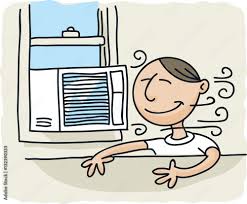 July 2025
July 2025
Over eighty million North Americans faced dangerous heat during 2023’s “heat dome’’.
During extreme heat, high-rise buildings can become ovens that create an indoor heat crisis posing serious health problems.
While many do have air conditioning, many do not. Those of us with good air conditioning systems can go or remain indoors which is an easy solution. For those without air conditioning that is not an option.
Some have window air conditioning units that partially cool a small area of the home but not enough to make it comfortable. Many have no access to air conditioning on even the hottest of days. And it is not just about access to air conditioning. Some are unable to afford to use it even when available.
Extreme heat is deadly with research suggesting one out of every 500 stroke deaths globally are caused by extreme heat. The risk of dying is 37 percent higher on a 32 Celsius day than it is on a 26 Celsius day.
As your body tries to defend itself against heat and lower its core body temperature, your heart beats faster and muscles fatigue more quickly. Coordination and balance are affected, and dehydration becomes a threat. Your brain begins to slow down. Some people, particularly seniors, may fail to take even basic measures like drinking more water to defend against heat.
The importance of air conditioning only becomes evident when it is unavailable. Ensuring a building’s air conditioning system does not fail when needed the most requires preparation. Preventative maintenance on building systems is necessary before systems begin to fail. This requires maintaining fan coil systems, in- and out-take ducts and major equipment.
During a heat wave people seek relief in cooling centres. High-rise residential buildings may open a party room or other common areas with air conditioning systems even when units don’t have air conditioning.
Simple things can help cool our buildings. White roofs reflect the sun’s heat and solar radiation. Planting more trees near buildings creates shade and reduces the “urban heat island effect”.
 In the past it may not have been a concern if air conditioning systems failed during the hottest of days. With longer periods of hotter temperatures, properly maintaining these systems should become more of a priority.
In the past it may not have been a concern if air conditioning systems failed during the hottest of days. With longer periods of hotter temperatures, properly maintaining these systems should become more of a priority.







